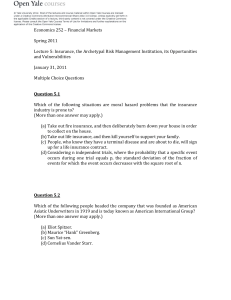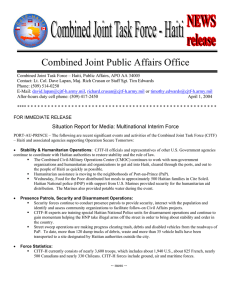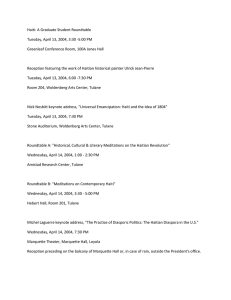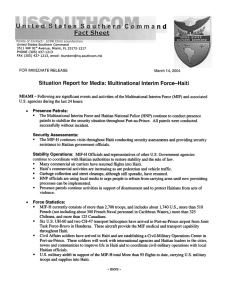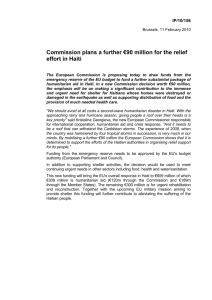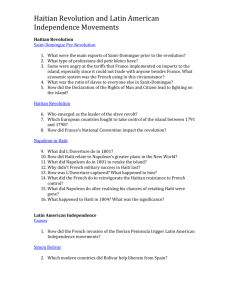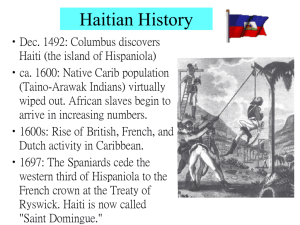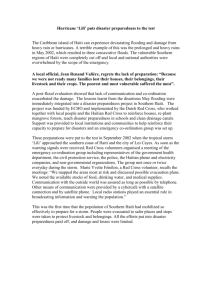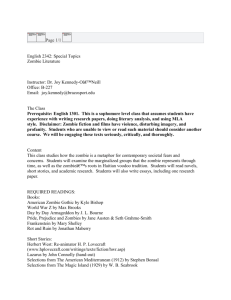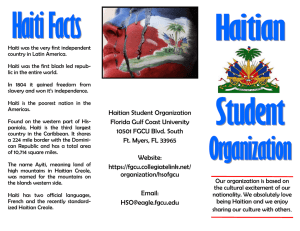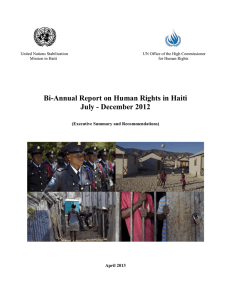White Zombie and *Magic Island*
advertisement
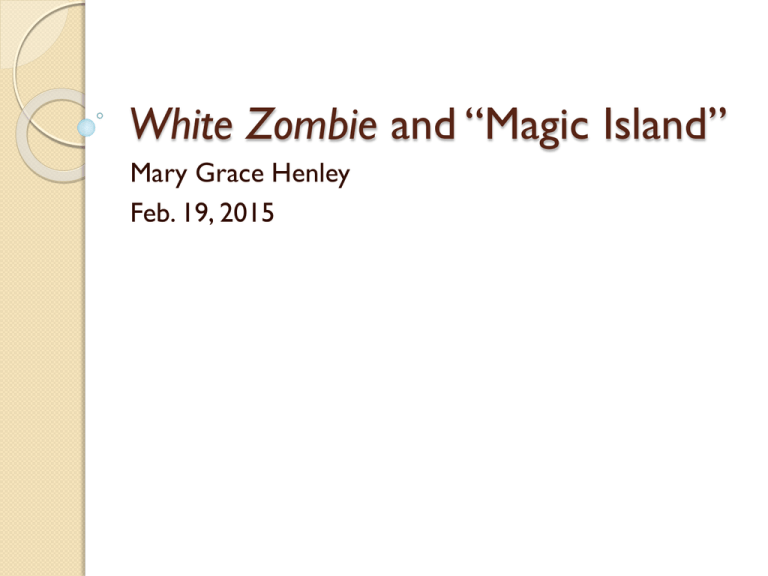
White Zombie and “Magic Island” Mary Grace Henley Feb. 19, 2015 Main Idea Through sensationalism and sexualization of the Haitian people, “Magic Island” and White Zombie are consistent with the paternalistic and imperialistic view of Haiti during the U.S. occupation. Talk about historical context, stereotypes, advertising U.S. Occupation Haitian Revolution affected 19th century U.S. South could be motivation for slaves, made people suspicious, wanted control Occupation begins 1915 “allowed U.S. to become premiere power in the Caribbean under the guise of installing a liberal democracy for the first time in Haiti” Attempts to “civilize” the native Haitian people Advertising Advertising and sexualization Haiti associated with pleasure mystery, vacation, sugar, beaches Exploits peoples’ desires “A sensational production that lends itself to sensational exploitation” Ads more sexual than actual movie Murder’s power lies in his eyes eyes are penetrative and give him control over Madeleine’s body Advertisements preconditioned people to see the movie and the threat in a sexual way Where did this idea come from? A lot of inspiration: “Magic Island” Represents Haiti as mysterious land of primitive, superstitious people who need saving from a demented and sinister religion Plays on stereotypes of voodoo and cannibalism Also sexualizes Haitian people and culture, especially voodoo Goat-Cry Girl-Cry “The goat’s lingam became erect and rigid, the points of the girl’s breasts visibly hardened and were outlined sharply pressing against the coarse, thin, tight-drawn shift that was her only garment. Thus they faced each other motionless as two marble figures on the frieze of some ancient phallic temple.” Where do we see this in the film? Example 1 As the couple is riding into town Murder meets the carriage and stares at Madeleine She is seemingly immobilized as he snatches her scarf from her body Example 2 When Neil and the doctor are discussing Madeleine’s disappearance He distinguishes that the natives stole not just her body, but her live body Neil responds “better to be dead than in the hands of natives” Very physical language Conclusions By making a white woman a victim, the film demonizes native Haitian culture further, plays on fear of black men raping white women in American culture Sensationalist views of Haiti and the native people contributed to stereotypes and sinister images of Haitian natives People were primed to think this way by hypersexualized advertisements and previous existing stereotypes This is related to the U.S. occupation in that Haitians were seen as menacing, ignorant people preying on American white females, with evil rituals who needed to be saved; paternalism Sources White Zombie. Dir.Victor Halperin. Prod. Edward Halperin. Screenplay by Garnett Weston. Perf. Bela Lugosi and Madge Bellamy. United Artists, 1932. Web. Seabrook, William. The Magic Island. New York: Harcourt, Brace, 1929. Rhodes, Gary D. White Zombie: Anatomy of a Horror Film. Jefferson, NC: McFarland, 2001. Print.
